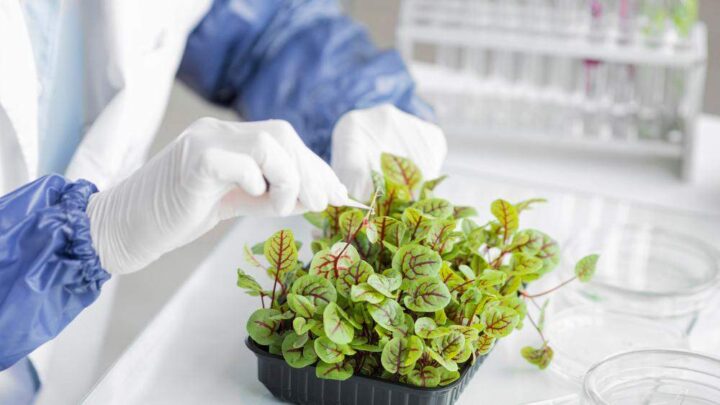The Role of Botanicals in Combatting Addiction: A Look at Emerging Solutions
Addiction continues to be a pervasive global issue, affecting millions of people and their families. Current treatments, such as behavioral therapies, medication-assisted treatment (MAT), and detoxification programs, are effective for many. However, for others, these conventional approaches may not provide sufficient relief or accessibility.
In light of these challenges, researchers are exploring a range of natural botanicals that have shown promise in reducing withdrawal symptoms and cravings, and helping manage substance use disorders. Below, we’ll explore five botanicals gaining attention due to their potential role in combatting addiction.

1. Kratom: A Potential Ally in Opioid Withdrawal
Kratom (Mitragyna speciosa) has long been recognized for its stimulant and analgesic properties. More recently, it has attracted attention for its ability to aid those battling opioid dependency. The essential active compounds in kratom are mitragynine, and 7-hydroxymitragynine.
They link to the opioid receptors in the brain without producing the same intensity of euphoric effects as synthetic opioids. This makes kratom a promising candidate for helping individuals manage opioid withdrawal symptoms and cravings.
Additionally, kratom has shown potential for reducing pain and providing relief for those struggling with chronic conditions. If you read reliable kratom resources, you’ll learn that kratom’s unique pharmacological profile positions it as an effective tool in opioid harm reduction.
Unlike synthetic opioids, kratom does not trigger the ?-arrestin pathway, a mechanism often associated with the respiratory depression associated with opioid use.
This distinctive interaction with opioid receptors suggests that kratom may offer an alternative for people seeking to manage withdrawal symptoms without the risks associated with traditional opioid treatments. More clinical studies will be necessary to understand kratom’s full potential and its implications in addiction therapy, but current data presents a promising outlook.
2. Ibogaine: Resetting the Brain’s Chemistry
Iboga (Tabernanthe iboga) has garnered attention for its ability to “reset” the brain’s neurochemical balance in those who have an addiction. Traditionally used in spiritual ceremonies by the Bwiti tribe, ibogaine, the active compound in iboga, is now researched for its ability to reduce cravings and ease withdrawal symptoms, especially for opioids and stimulants.
During treatment, ibogaine induces a profound psychological experience that many describe as a “reset” of the brain’s addiction pathways, which helps break the cycle of opioid dependence.
Ibogaine’s mechanism of action appears to involve altering the brain’s reward system, which can reset the way addictive substances are processed. Additionally, studies show that ibogaine interrupts opioid withdrawal symptoms without the need for additional opioids, giving individuals a window of relief to begin recovery.
While ibogaine treatment is not without risks, its potential to help those who have not responded to conventional treatments has led to continued research into its safety and efficacy.
3. Kudzu: Reducing Alcohol Cravings
Kudzu (Pueraria lobata), a plant commonly known for its invasive growth, has been used in traditional Chinese medicine for over millennia to treat alcohol dependency. Kudzu contains several bioactive compounds, such as daidzin and puerarin, that have been shown to reduce alcohol consumption in human and animal studies.
These compounds work by altering the body’s alcohol metabolism, slowing the rate at which alcohol is absorbed and metabolized, which may reduce the desire to continue drinking.
Recent studies have focused on kudzu’s ability to moderate binge drinking and lessen alcohol cravings. In one clinical trial, participants who took kudzu extract showed a significant reduction in alcohol intake compared to those who did not. The plant’s natural ability to affect alcohol metabolism presents a promising alternative or complement to conventional medications aimed at treating alcohol use disorders.
4. Kanna: Easing Anxiety and Stress
Kanna (Sceletium tortuosum), native to South Africa, has long been used for its mood-enhancing and anxiety-reducing properties. Traditionally chewed or brewed into tea, kanna has been found to contain compounds like mesembrine that act as selective serotonin reuptake inhibitors (SSRIs), much like many prescription antidepressants. This makes kanna a candidate for easing anxiety and stress, both of which often contribute to addiction.
Studies have shown that kanna can help manage stress, anxiety, and depression. This makes it a potential ally for individuals struggling with substance use disorders. Reducing anxiety may help prevent relapse by offering a natural alternative for managing the emotional and psychological challenges often encountered during recovery.
5. Milk Thistle: Protecting the Liver in Alcohol Recovery
Milk thistle (Silybum marianum) has been used as a liver disease treatment for centuries. Its primary active compound, silymarin, is well-known for its hepatoprotective effects. For individuals recovering from alcohol addiction, milk thistle reduces the risk of liver damage caused by excessive alcohol consumption.
Research shows that silymarin can promote liver cell regeneration and reduce inflammation in those with alcohol-related liver disease. It may also help reduce oxidative stress and fibrosis in the liver, offering a supportive role in the detoxification process for individuals recovering from alcohol dependence. While milk thistle may not directly affect cravings or withdrawal, it plays a vital role in helping the body heal from the damage caused by alcohol abuse.
The Rise of Botanicals in Addiction Treatment
These plants offer promising new paths for those seeking natural alternatives to traditional therapies. Each brings unique properties that can aid recovery, from reducing cravings and easing withdrawal symptoms to protecting vital organs like the liver.
As research into these substances continues, they may become critical tools in combatting addiction, providing individuals with more options to support their journey toward recovery. While these botanicals are not a replacement for professional medical care, they offer a supplemental approach that could enhance existing addiction therapies.


